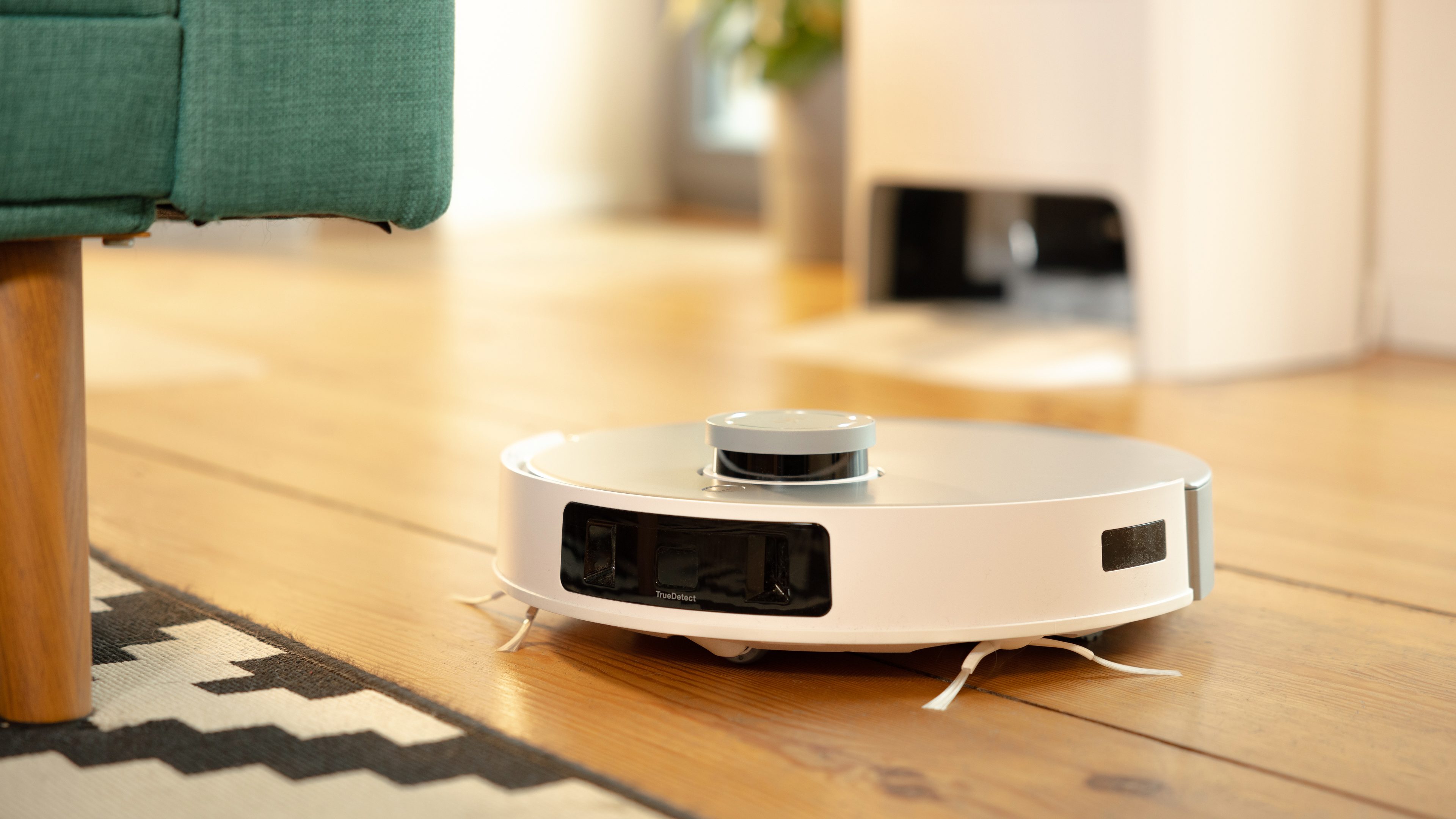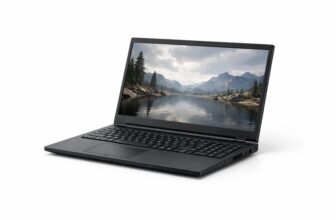
Jordan Mechner’s 1989 platformer built on the cinematic foundations of Karateka and started a franchise which has seen its share of ups (the Sands of Time reboot, the recent Lost Crown revival) and downs (the Sands of Time film, Prince of Persia 3D), but despite the occasional misfire or workaday entry, the series has endured for almost 35 years
But what’s the best Prince of Persia game? We’ve missed a handful on Nintendo consoles over the years (notably the underrated 2008 reboot), yet the vast majority of entries are playable on Nintendo platforms, with multiple different ports of the original.
There are 15 Prince of Persia games on Nintendo systems by our count. and to find out which is best, we asked Nintendo Life readers to rate the ones they’ve played — and you can see the results below.
Remember: This Prince of Persia ranking is governed by User Ratings for each game on our database and is subject to real-time fluctuations, even after publication. That means it’s still possible to influence and alter the ranking below. To do so, simply click on the game you wish to rate and assign a score on the Game Page.
Canonically taking place between The Sands of Time and Warrior Within, Battles of Prince of Persia sees the series dip its toe into the realm of turn-based tactics to varying degrees of success.
The tactics system shines on the DS, with touchscreen controls making it simple to move units around the battlefield while keeping an eye on what’s happening thanks to the top screen. Unfortunately, the game’s additional card-battling elements never feel like they really gel with the turn-based combat, making battles needlessly complicated and quickly monotonous.
For fans of DS tactics games, this is probably worth checking out, but anyone after an introduction to the genre is likely better off looking elsewhere.
You can’t knock Prince of Persia: The Fallen King‘s originality. This fresh take on the franchise from Ubisoft was built solely for the DS with a touchscreen movement system, a new story and a smattering of unique mechanics which undoubtedly make the project a commendable big swing.
As is the case with so many touchscreen-controlled platformers, however, this action-adventure is let down in its movement, offering a scheme that is simple to grasp but quickly becomes tiresome. The additional magic commands from new character Zal bring a refreshing change to the combat system, but it lacks the hack-and-slash appeal that defined the series up until this point.
Much like the corresponding Wii version, Prince of Persia: The Forgotten Sands on DS represented a noble attempt at incorporating some of the console’s nuances into the gameplay. It’s praiseworthy for its reluctance to be another bare-bones port, but the end product is a mixed bag.
Utilising touchscreen controls is a tough sell for an action platformer, and The Forgotten Sands on DS is no exception. While the return of the rewind ability does help to alleviate some of these frustrations, those who are used to D-pad movement will find little here to convince them that this is a preferred method.
That said, the DS edition does contain a unique cult-based storyline set between Sands of Time and Warrior Within, so it’s worth a look for those looking to get completely up to date on their PoP lore.
It’s sometimes easy to lump in a 2D portable version of a 3D classic with the also-rans, but given the series’ side-on origins, something about this felt fitting. While it can’t measure up to the majesty of the home console game, this saw the acrobatic Prince leaping, swinging, and shimmying (and rewinding) as he collected ability-bestowing scrolls and worked to foil the plans of the evil Vizier.
A smooth, well-animated adventure that blended the old and the new styles pretty well, it was also possible to use this GBA cart to unlock the original Prince of Persia in the GameCube Sands of Time, if you had the GBA-to-GC transfer cable. Bonza!
Given that Prince of Persia is largely known for its excellent GameCube revival Sands of Time, it’s often difficult to comprehend that the franchise actually got its start back in the late ’80s. Yet here we are. Prince of Persia for the NES is worlds apart from what the series would eventually develop into, but it nevertheless laid some solid foundations.
Considering its age, Prince of Persia showcases some pretty impressive animations and cinematic platforming; something that would ultimately go on to influence the likes of Flashback and the GBC version of Tomb Raider. It’s not perfect, but it’s a darn good start for the franchise.
Handled by Ed Magnin, the same programmer behind the regular GB release, the Game Boy Color version of Prince of Persia is an alright port, though it is marred by a handful of small annoyances. If you don’t have any other options (which seems unlikely all these years later), it might entertain you for a while, but the other ports fare much, much better. This one was also available on the 3DS Virtual Console.
Like many third-party Wii games, Rival Swords was what many would describe as a lesser port of Two Thrones; you know, kind of a “but we have Two Thrones at home, honey” kind of deal. Even so, we can’t write it off entirely, as it was still a reasonably decent game in its own right. Motion controls were of course implemented to varying success, but the same action and platforming fun could be found here in spades.
Nevertheless, it seems Prince of Persia fatigue was certainly settling in when the game launched in 2007, and Ubisoft saw fit to reboot the series just one year later. Sadly, that one has yet to grace Nintendo platforms.
The second entry in the original Prince of Persia trilogy, The Shadow and the Flame carries on the same cinematic platforming featured in the original. It’s safe to say that the passage of time hasn’t been entirely kind to this one, mind, as the environmental visuals in particular leave a lot to be desired. That said, with its solid combat and branching pathways, it’s still worth a revisit, even if it does mean seeking out an original SNES copy.
Set between Sands of Time and Warrior Within, the Prince’s first original adventure on Wii should be commended for being designed specifically for the machine rather than ported across from other formats. Regrettably, that meant some all-too-familiar Wii mechanics raised their heads to spoil an otherwise decent package.
Prince of Persia: The Forgotten Sands was an admirable attempt to make what could have been a complex 3D platformer accessible. The use of the light beam and jump assist was a blessing to newcomers, though for veterans the lack of full control could be off-putting, seemingly lowering the level of skill required to succeed. If you could see past that, you’d likely still find something to enjoy. Still, this one is more Squire than Prince of Persia.
With more (and larger) levels, great visuals and music, and various other enhancements, there’s a strong argument that the 16-bit SNES version is the best version of Prince of Persia ever made. Whether you agree with that sentiment or not, it’s absolutely worth investigating.
Blurring the lines between port and remake, this was created by Arsys Software (who would go on to help Polyphony Digital with Gran Turismo) and is essentially the same game as always, but with many new features and an increased level count — upped from the original 13 to 20 — that make it a must-play even for those who know the original inside out.
Prince of Persia: Warrior Within falls into the “darker, grittier” trend that mass media embraced during the mid-2000s. But despite this tonal shift, Warrior Within is largely successful thanks to its improved level design and expanded combat. Using your mobility during combat feels really satisfying, and the excellent platforming from the previous games is retained here. If you love deep combat and exciting platforming, then Warrior Within is a must-play and one of the better Prince of Persia games.
Striking a happy balance between the previous two games, Prince of Persia: The Two Thrones manages to marry excellent combat and thoughtful platforming perfectly. Ubisoft seemingly listened to criticisms of Warrior Within and decided to give players the best of both worlds — with two protagonists, much-tighter gameplay, and a fantastic setting, The Two Thrones serves as a fantastic end to the trilogy.
Prince of Persia: The Lost Crown is a slick return to the roots of this franchise that serves up clever 2.5D action wrapped up in a delightful art style and satisfying story. There’s a smart balance here between old-school levels of action and challenge, moreish combat, and neat puzzles, all mixed with accessibility options and fine-tuning that open things up to newcomers and casual players. We knew Ubisoft Montpellier was a pair of safe hands and the team hasn’t let us down, serving up the first must-play of 2024 in a Switch port that absolutely does the business.
Ubisoft’s 3D take on the iconic 2D original spawned several sequels, but arguably none of them had the finesse and focus of Prince of Persia: The Sands of Time. Using the same engine that powered Beyond Good & Evil, a rewind mechanic was sewn into the very fabric of the game which let you unstitch mistakes and gave the Prince a wonderful new gameplay gimmick to play with which felt exceptionally fresh back in 2003. There’s an elegance to the gameplay here that got lost in the subsequent entries, where everything went a bit emo.
This was one of several top-notch multiplatform releases which came to GameCube and it’s definitely worth winding the clock back and taking another look at, especially as the announced-then-delayed remake seems to be stuck in a loop.
Surprised? Do you think the in-limbo Sands of Time remake will make it to a Nintendo platform, be it Switch or its successor?
Feel free to let us know your thoughts on the princely ranking above and share a comment about your personal favourite(s) below.
Jordan Mechner’s 1989 platformer built on the cinematic foundations of Karateka and started a franchise which has seen its share of ups (the Sands of Time reboot, the recent Lost Crown revival) and downs (the Sands of Time film, Prince of Persia 3D), but despite the occasional misfire or workaday entry, the series has endured for almost 35 years
But what’s the best Prince of Persia game? We’ve missed a handful on Nintendo consoles over the years (notably the underrated 2008 reboot), yet the vast majority of entries are playable on Nintendo platforms, with multiple different ports of the original.
There are 15 Prince of Persia games on Nintendo systems by our count. and to find out which is best, we asked Nintendo Life readers to rate the ones they’ve played — and you can see the results below.
Remember: This Prince of Persia ranking is governed by User Ratings for each game on our database and is subject to real-time fluctuations, even after publication. That means it’s still possible to influence and alter the ranking below. To do so, simply click on the game you wish to rate and assign a score on the Game Page.
Canonically taking place between The Sands of Time and Warrior Within, Battles of Prince of Persia sees the series dip its toe into the realm of turn-based tactics to varying degrees of success.
The tactics system shines on the DS, with touchscreen controls making it simple to move units around the battlefield while keeping an eye on what’s happening thanks to the top screen. Unfortunately, the game’s additional card-battling elements never feel like they really gel with the turn-based combat, making battles needlessly complicated and quickly monotonous.
For fans of DS tactics games, this is probably worth checking out, but anyone after an introduction to the genre is likely better off looking elsewhere.
You can’t knock Prince of Persia: The Fallen King‘s originality. This fresh take on the franchise from Ubisoft was built solely for the DS with a touchscreen movement system, a new story and a smattering of unique mechanics which undoubtedly make the project a commendable big swing.
As is the case with so many touchscreen-controlled platformers, however, this action-adventure is let down in its movement, offering a scheme that is simple to grasp but quickly becomes tiresome. The additional magic commands from new character Zal bring a refreshing change to the combat system, but it lacks the hack-and-slash appeal that defined the series up until this point.
Much like the corresponding Wii version, Prince of Persia: The Forgotten Sands on DS represented a noble attempt at incorporating some of the console’s nuances into the gameplay. It’s praiseworthy for its reluctance to be another bare-bones port, but the end product is a mixed bag.
Utilising touchscreen controls is a tough sell for an action platformer, and The Forgotten Sands on DS is no exception. While the return of the rewind ability does help to alleviate some of these frustrations, those who are used to D-pad movement will find little here to convince them that this is a preferred method.
That said, the DS edition does contain a unique cult-based storyline set between Sands of Time and Warrior Within, so it’s worth a look for those looking to get completely up to date on their PoP lore.
It’s sometimes easy to lump in a 2D portable version of a 3D classic with the also-rans, but given the series’ side-on origins, something about this felt fitting. While it can’t measure up to the majesty of the home console game, this saw the acrobatic Prince leaping, swinging, and shimmying (and rewinding) as he collected ability-bestowing scrolls and worked to foil the plans of the evil Vizier.
A smooth, well-animated adventure that blended the old and the new styles pretty well, it was also possible to use this GBA cart to unlock the original Prince of Persia in the GameCube Sands of Time, if you had the GBA-to-GC transfer cable. Bonza!
Given that Prince of Persia is largely known for its excellent GameCube revival Sands of Time, it’s often difficult to comprehend that the franchise actually got its start back in the late ’80s. Yet here we are. Prince of Persia for the NES is worlds apart from what the series would eventually develop into, but it nevertheless laid some solid foundations.
Considering its age, Prince of Persia showcases some pretty impressive animations and cinematic platforming; something that would ultimately go on to influence the likes of Flashback and the GBC version of Tomb Raider. It’s not perfect, but it’s a darn good start for the franchise.
Handled by Ed Magnin, the same programmer behind the regular GB release, the Game Boy Color version of Prince of Persia is an alright port, though it is marred by a handful of small annoyances. If you don’t have any other options (which seems unlikely all these years later), it might entertain you for a while, but the other ports fare much, much better. This one was also available on the 3DS Virtual Console.
Like many third-party Wii games, Rival Swords was what many would describe as a lesser port of Two Thrones; you know, kind of a “but we have Two Thrones at home, honey” kind of deal. Even so, we can’t write it off entirely, as it was still a reasonably decent game in its own right. Motion controls were of course implemented to varying success, but the same action and platforming fun could be found here in spades.
Nevertheless, it seems Prince of Persia fatigue was certainly settling in when the game launched in 2007, and Ubisoft saw fit to reboot the series just one year later. Sadly, that one has yet to grace Nintendo platforms.
The second entry in the original Prince of Persia trilogy, The Shadow and the Flame carries on the same cinematic platforming featured in the original. It’s safe to say that the passage of time hasn’t been entirely kind to this one, mind, as the environmental visuals in particular leave a lot to be desired. That said, with its solid combat and branching pathways, it’s still worth a revisit, even if it does mean seeking out an original SNES copy.
Set between Sands of Time and Warrior Within, the Prince’s first original adventure on Wii should be commended for being designed specifically for the machine rather than ported across from other formats. Regrettably, that meant some all-too-familiar Wii mechanics raised their heads to spoil an otherwise decent package.
Prince of Persia: The Forgotten Sands was an admirable attempt to make what could have been a complex 3D platformer accessible. The use of the light beam and jump assist was a blessing to newcomers, though for veterans the lack of full control could be off-putting, seemingly lowering the level of skill required to succeed. If you could see past that, you’d likely still find something to enjoy. Still, this one is more Squire than Prince of Persia.
With more (and larger) levels, great visuals and music, and various other enhancements, there’s a strong argument that the 16-bit SNES version is the best version of Prince of Persia ever made. Whether you agree with that sentiment or not, it’s absolutely worth investigating.
Blurring the lines between port and remake, this was created by Arsys Software (who would go on to help Polyphony Digital with Gran Turismo) and is essentially the same game as always, but with many new features and an increased level count — upped from the original 13 to 20 — that make it a must-play even for those who know the original inside out.
Prince of Persia: Warrior Within falls into the “darker, grittier” trend that mass media embraced during the mid-2000s. But despite this tonal shift, Warrior Within is largely successful thanks to its improved level design and expanded combat. Using your mobility during combat feels really satisfying, and the excellent platforming from the previous games is retained here. If you love deep combat and exciting platforming, then Warrior Within is a must-play and one of the better Prince of Persia games.
Striking a happy balance between the previous two games, Prince of Persia: The Two Thrones manages to marry excellent combat and thoughtful platforming perfectly. Ubisoft seemingly listened to criticisms of Warrior Within and decided to give players the best of both worlds — with two protagonists, much-tighter gameplay, and a fantastic setting, The Two Thrones serves as a fantastic end to the trilogy.
Prince of Persia: The Lost Crown is a slick return to the roots of this franchise that serves up clever 2.5D action wrapped up in a delightful art style and satisfying story. There’s a smart balance here between old-school levels of action and challenge, moreish combat, and neat puzzles, all mixed with accessibility options and fine-tuning that open things up to newcomers and casual players. We knew Ubisoft Montpellier was a pair of safe hands and the team hasn’t let us down, serving up the first must-play of 2024 in a Switch port that absolutely does the business.
Ubisoft’s 3D take on the iconic 2D original spawned several sequels, but arguably none of them had the finesse and focus of Prince of Persia: The Sands of Time. Using the same engine that powered Beyond Good & Evil, a rewind mechanic was sewn into the very fabric of the game which let you unstitch mistakes and gave the Prince a wonderful new gameplay gimmick to play with which felt exceptionally fresh back in 2003. There’s an elegance to the gameplay here that got lost in the subsequent entries, where everything went a bit emo.
This was one of several top-notch multiplatform releases which came to GameCube and it’s definitely worth winding the clock back and taking another look at, especially as the announced-then-delayed remake seems to be stuck in a loop.
Surprised? Do you think the in-limbo Sands of Time remake will make it to a Nintendo platform, be it Switch or its successor?
Feel free to let us know your thoughts on the princely ranking above and share a comment about your personal favourite(s) below.






